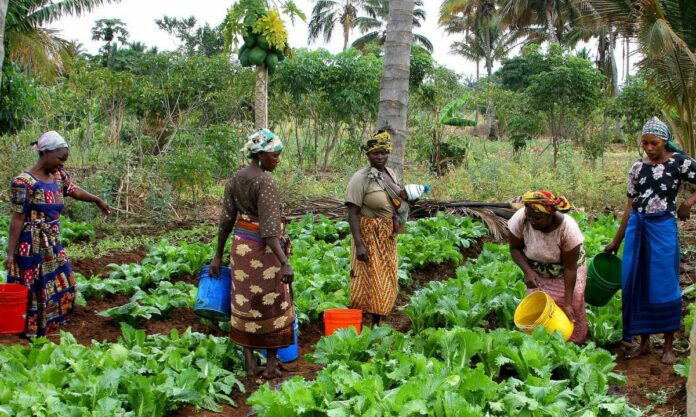There are approximately three million smallholder farm families in Kenya. Smallholder farms hold the greatest promise for the growth of the produce sector, for enhanced productivity, and for meeting the challenges of food insecurity and malnutrition head on.
There is growing evidence that smallholder farmers also hold the key to solving rising climate change challenges.
Farmers create primary value by being production focused. Farmers bring to the table land, labour, productive capacity, motivation to persevere under all conditions, and the will to survive. Their businesses largely fall in what we call the informal market.
The informal market is not good for these farmers in the long run; it leaves them with little to no power to influence the marketplace and it keeps them in what I call “equity darkness”, that dim place where no one knows who you are or what you do and you go in circles trying to figure out how to pay for input supplies and hired labour to no avail. Their prized knowledge is about their crops and how to produce quality fruits and vegetables.
When I ask smallholder farmers about their greatest challenges, I hear laments about entering and securing stable markets for both raw and processed goods. I hear about the demerits of relying on rain alone, misunderstandings about the use and amount of fertilisers and the differences between organic and non-organic fertilisers, and the lack of access to processing facilities.
An agripreneur is a businessperson who combines the prowess of farming with innovative agro-technologies to increase production and make more cash.
RISKY BUSINESS
This agricultural entrepreneur cares as much for community development as she does farming. It is not just about her growing more quality food on a stable basis; it is about joining together with other farmers in new ways such as through cooperatives and producer unions so that all farmers can produce their way to a better life.
It is also about local communities embracing their farmers as important members of the local economy and improving conditions for their sustainability. By utilising and sharing agro-technologies, smallholder farmers have the opportunity to join the agribusiness value chain and reap the profits.
Agripreneurs empower farmers by moving them into the formal economy and linking them with other actors in the agricultural value chain to bring about a movement on a mass scale.
They incorporate technology, new ideas, innovative approaches, basic education and technical capacity building to demonstrate practical ways to grow more produce, create processing capacity and impact market share on a grand scale. They have the power to influence the market by aggregating hundreds and hundreds of farmers’ productive capacity through technology.
For Kenya, this means bringing millions of smallholder farmers into the complex but sustainable world of agricultural value chains. Farmers have a legitimate role in the agricultural value chain and I believe they have the opportunity now to drive the value chain through apps that give them the information they need to make better decisions.
After all, farmers are in a high risk business; they need to manage risk by making better informed decisions. The top software apps for Kenyan farmers: iCow, Rural eMarket, mFarm, mFisheries, Esoko mAgric platform, FarmerConnect, M-Shamba, Mobile Agribiz, AgroSim, amAgriculture, and Farming Instructor.
mFisheries connects fishermen with agents in the fisheries value chain. It includes navigational tools such as a compass and a GPS logging and retrieval application as well as training companions. Esoko links farmers to markets with automatic market prices and offers from buyers. mFarm connects farmers to share ideas and enhances operational efficiencies with production cost estimating tools. Rural eMarket communicates market information in multiple languages.
iCow increases productivity by accessing knowledge partners and experts. M-Shamba, currently in use by 4,000 rice farmers in Kenya, provides information on production, harvesting, marketing, credit, weather and climate based on location and crop preference.
Mobile Agribiz helps connect farmers to buyers and source information on how to plant crops, how to use fertilisers, and aggregates weather and crop pricing from multiple sources.
By building strong partnerships between farmers and agripreneurs, we can easily distribute and use these agri-technologies for the benefit of Kenyan farmers.









